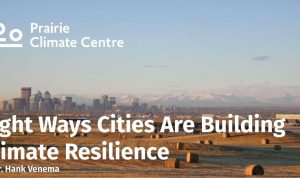Historic Landmarks Damaged by Natural Disasters highlight the fragile nature of our cultural heritage in the face of mother nature’s might. Throughout history, monumental structures such as ancient temples, famous castles, and iconic bridges have suffered catastrophic damage from earthquakes, floods, hurricanes, and other natural calamities. These incidents serve as stark reminders of the vulnerability of even the most enduring symbols of human achievement.
This discussion delves into the significance of these landmarks, the impact of natural disasters on their structural integrity, and the efforts made for their restoration and preservation. Exploring the stories behind each landmark brings to light not only the devastation caused but also the resilience and dedication of communities striving to protect their historical treasures.
In today’s fast-paced world, where technology and social dynamics are continually evolving, it’s essential to remain adaptable and informed. This article will explore various aspects of personal development, focusing on the importance of lifelong learning, effective communication, and emotional intelligence. By honing these skills, individuals can enhance their personal and professional lives, ultimately leading to greater fulfillment and success.### The Importance of Lifelong LearningLifelong learning is the ongoing, voluntary, and self-motivated pursuit of knowledge for personal or professional development.
It’s essential in a world where trends and technologies change rapidly. Engaging in lifelong learning can take many forms, including formal education, online courses, workshops, reading, and even social interactions.#### Staying Relevant in Your CareerIn a competitive job market, staying relevant is crucial. Industries are continuously evolving, and new skills are always in demand. Professionals who commit to lifelong learning are more adaptable and can pivot when necessary, making them invaluable to their organizations.
For instance, a marketing professional who learns about data analytics can significantly enhance their skill set, leading to better job performance and career advancement.#### Personal Growth Through LearningLifelong learning is not just about career progression; it also contributes to personal development. Exploring new subjects can ignite passions and interests that lead to a more fulfilling life. Whether it’s picking up a new language, exploring different cultures through travel, or diving into a hobby, the benefits are manifold.
Engaging in diverse learning opportunities can foster creativity, improve problem-solving skills, and enhance one’s ability to think critically.### Effective CommunicationEffective communication is a cornerstone of personal and professional success. It encompasses not just the exchange of information but also the ability to connect with others emotionally and intellectually. Good communication skills can transform relationships and open doors to new opportunities.#### Active ListeningOne of the most important aspects of effective communication is active listening.
This means fully concentrating on what is being said rather than just passively hearing the message. Practicing active listening can improve relationships at work and in personal life. When individuals feel heard and understood, it fosters trust and respect.#### Non-Verbal CommunicationCommunication is not limited to words; it’s also about body language, facial expressions, and tone of voice. Being aware of non-verbal cues can enhance how messages are delivered and received.
For example, maintaining eye contact during a conversation shows engagement and confidence, while an open posture can signal receptiveness and approachability.#### The Art of PersuasionBeing persuasive is a valuable skill, especially in professional settings. It involves understanding your audience, addressing their needs, and framing your message in a way that resonates with them. This does not mean being manipulative; rather, it’s about presenting ideas compellingly and convincingly.
Developing this skill can lead to successful negotiations, better teamwork, and improved leadership abilities.### Emotional IntelligenceEmotional intelligence (EI) refers to the ability to recognize, understand, and manage our own emotions and the emotions of others. It plays a significant role in how we interact with others and navigate social complexities.#### Self-AwarenessSelf-awareness is the foundation of emotional intelligence. It involves recognizing your emotions and how they influence your thoughts and behaviors.
Individuals with high self-awareness can effectively manage their reactions and make more informed decisions. Practicing mindfulness, journaling, or seeking feedback from trusted peers can enhance self-awareness.#### EmpathyEmpathy is the ability to understand and share the feelings of others. It is a crucial component of emotional intelligence and can improve interpersonal relationships. By putting yourself in someone else’s shoes, you can better appreciate their perspective, leading to more meaningful connections and effective collaboration.#### Managing EmotionsEmotional regulation is another vital aspect of emotional intelligence.
It involves managing your emotions in a healthy way, especially in stressful situations. Techniques such as deep breathing, positive self-talk, and taking breaks can help in maintaining emotional balance. Individuals who can manage their emotions are often seen as more approachable and are better equipped to handle conflict.### Balancing Personal and Professional DevelopmentWhile personal and professional development are often viewed as separate entities, they are deeply interconnected.
For instance, the skills learned in a personal context, such as teamwork in a community project, can enhance professional performance. Conversely, professional experiences can lead to personal growth by challenging one’s beliefs and expanding one’s perspective.#### Setting GoalsGoal setting is a crucial component of any development plan. Whether personal or professional, having clear, achievable goals helps individuals stay focused and motivated.
SMART (Specific, Measurable, Achievable, Relevant, Time-bound) goals can provide a framework for effective goal setting. Regularly reviewing and adjusting these goals is essential to maintaining momentum and ensuring continued growth.#### Seeking FeedbackFeedback is a valuable tool for personal and professional development. Constructive criticism from peers, mentors, or supervisors can provide insights into areas for improvement. Being open to feedback and willing to make adjustments can significantly accelerate growth.
Additionally, seeking feedback from diverse sources can enhance understanding and broaden perspectives.### Building a Support NetworkA strong support network plays a crucial role in personal and professional development. Surrounding yourself with positive influences can provide encouragement, motivation, and valuable insights. Networking with like-minded individuals can lead to new opportunities and collaborations.#### MentorshipFinding a mentor can be incredibly beneficial for personal and professional growth.
A mentor can provide guidance, share experiences, and offer advice tailored to your specific situation. Building a relationship with someone who has achieved what you aspire to can provide a roadmap for success.#### Peer SupportPeer support is equally essential. Engaging with colleagues, friends, or community members who share similar interests can create a sense of belonging and accountability. Collaborating with peers can also lead to brainstorming new ideas and solutions to problems.### ConclusionIn conclusion, personal and professional development is a lifelong journey that requires dedication, adaptability, and a willingness to learn.
By committing to lifelong learning, practicing effective communication, and developing emotional intelligence, individuals can enhance their lives significantly. The skills acquired through this journey not only lead to personal fulfillment but also to professional success. As we navigate the complexities of modern life, let’s embrace the continuous process of growth and strive to become the best versions of ourselves.
Top FAQs: Historic Landmarks Damaged By Natural Disasters
What are some examples of historic landmarks affected by natural disasters?
Examples include the Notre-Dame Cathedral in Paris, which suffered a fire, and the ancient city of Pompeii, which was buried under volcanic ash.
How do natural disasters impact the preservation of historic landmarks?
Natural disasters can cause significant structural damage, leading to costly repairs and sometimes irreversible loss of historical integrity.

What measures are taken to restore damaged historic landmarks?
Restoration often involves a combination of architectural analysis, historical research, and modern engineering techniques to maintain authenticity while ensuring safety.
Are there specific organizations focused on protecting historic landmarks?
Yes, organizations such as UNESCO and the National Trust work globally to preserve cultural heritage sites and provide support during restoration efforts.
How can individuals contribute to preserving historic landmarks?
Individuals can contribute by supporting preservation organizations, volunteering for restoration projects, or advocating for policies that protect cultural heritage.






